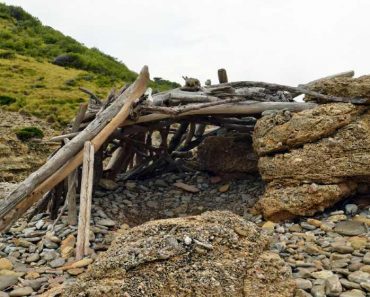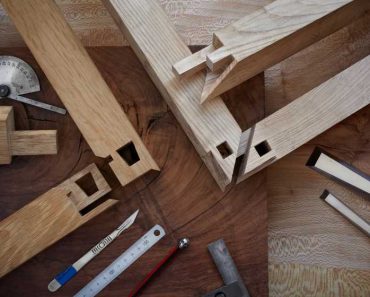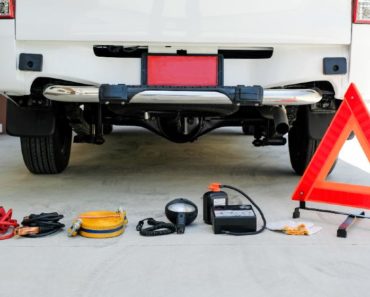There was a time when “going off the grid” sounded like a fantasy to a lot of people for a long time. However, we’re living in a society where power outages can happen at any time — sometimes even thanks to the electrical companies themselves. On top of that, utility bills have increased for most people. Now, there’s even talk of limiting or eliminating things like gas-powered stoves in residential homes.
No matter your political beliefs or how you felt about going off the grid before, there’s no denying the benefits now. It’s better for the environment, helps you foster a sustainable lifestyle, and keeps you in more control of your daily routine.
Of course, it’s not as easy as turning off a switch and never turning it back on again. If you’re seriously considering going off the grid, there are some important dos and don’ts you should be aware of ahead of time. With the right knowledge and preparation, the entire experience will be easier and more fulfilling for you and your family.
With that in mind, let’s take a look at some of the things you should do, and some things you should avoid before stepping into this lifestyle.
Do: Secure Your Homestead
We’re living in a world where smart home technology is more popular than ever. According to eMarketer, about 60.4 million households in the U.S. currently use at least one smart home device. That includes everything from thermostats to security systems and video doorbells. While smart security can be a great way to keep your home safe, it doesn’t coincide with off-the-grid living.
You’ll have to find other, effective ways to secure your homestead if you decide to live off the land and away from technology. Try things like:
- Covering your windows;
- Using motion-sensor lights outside;
- Installing heavy-duty locks;
- Putting up fencing.
Most importantly, make sure you always double-check everything before you leave your home and before you go to bed each night.
Don’t: Expect Things to Be Easy
Whether you’ve been prepping for a while or not, there’s no denying that living off the grid is difficult. Most of us are used to simple, everyday luxuries. Technology has made life incredibly easy, and not being able to use that to your advantage will undoubtedly be a struggle at first. Living off the grid isn’t for people who don’t have a lot of motivation and drive. You have to be willing to stay productive and put in a lot of hard work every day, especially if you’re going to live off the land.
Do: Plan for Proper Storage
Seasons change, and so will your needs throughout the year. Make sure you’re always planning ahead for the next season so you’ll have an adequate supply of food and seasonal equipment.
For example, depending on where you live, you’re probably not going to be playing baseball and basketball with the kids in the middle of winter. But, you don’t want that equipment to take up too much space. You can organize seasonal equipment more efficiently by:
- Utilizing wall space;
- Utilizing ceiling space;
- Using buckets and baskets;
- Labeling storage items.
These organizational tips work for more than just seasonal sports equipment. You can keep things like space heaters, heavy blankets, and even yard equipment stored properly and safely, leaving room for you to use the equipment you need for the current season.
Additionally, you should plan for food storage throughout the year. If you’re growing your own food, things like canning and preserving are great ways to ensure you have a year-round supply of nutritious meals. If you only go on a few shopping trips throughout the year, making room for bulk storage items is important. Create an organized system that allows you to keep track of expiration dates, and one that makes it easy to store foods in categories that are easy for your whole family to identify.
Don’t: Be Unprepared for Seasonal Weather
In addition to storing your seasonal equipment properly, it’s essential to prepare your home and your family for whatever the changing seasons might bring. That typically means preparing for winter or common natural disasters within your area so nothing gets damaged.
Do a seasonal check of your home. Make sure there are no leaks or cracks in the interior or exterior. Keeping up with maintenance this way will allow you to catch any problems while they’re still small.
Before it gets cold, consider sealing your windows and doors, cleaning out your gutters, and getting your chimney inspected. It’s also a good time to cut back any tree branches that might be hanging over your house. A strong wind or winter storm could knock them down and create a lot of damage.
For natural disasters, make sure you create an evacuation plan for your family to follow in case a hurricane, tornado, earthquake, etc., affects your off-the-grid residence. You should also pack a go-bag for each scenario as well.
Do: Start a Garden and Raise Animals
Going off the grid typically means living off the land as much as possible. It offers a great opportunity to be more sustainable by growing your own food and raising your own animals to eat.
Starting a home garden is easier than you might think. Most vegetables do well in sunny spots, so pick the ideal location and plot out your garden before you start planting. Think about foods that you and your family enjoy eating and things that you can preserve somehow once it’s time to harvest. Some of the best foods for home canning are:
- Carrots;
- Green beans;
- Pickles;
- Applesauce;
- Beans;
- Jams and jellies.
If you raise chickens, turkeys, or even cattle, you can also learn how to properly butcher them for the meat, and preserve them through freezing, dehydrating, and canning. Living off the land and growing/raising your own food is a fantastic way to become more independent. Plus, you’ll save money, and do something good for the environment (and your own health) while you’re at it.
Do: Explore Solar Panels
Solar energy is becoming more popular than ever, but it’s not just a fad. The energy efficiency and cost-effectiveness of today’s residential solar panels might surprise you. They’re certainly still an investment, but they will lower your utility bills almost immediately and make it easier to become energy independent.
Nowadays, you can even go beyond basic solar panels and consider other options. There are solar water heaters, solar house heating that can keep your home warm in the winter, and even solar energy for outdoor lighting, so you can keep your home and property well-lit and safe without having to rely on traditional forms of energy.
Don’t: Ignore First Aid Skills
When you go off the grid, you won’t be able to quickly call an ambulance in an emergency or your child’s doctor when they’re up in the middle of the night with a fever. When you’re living in a secluded area or your home is in a rural environment, you might also be putting yourself at risk for more accidents and injuries. Everything from nature-related injuries to insect and animal bites can cause problems.
If you don’t have strong first-aid skills, you might want to hold off on cutting yourself off from technology. There are a few basic skills that are important for everyone to know, but they’re especially crucial when you’re more secluded. Some of the most important skills to learn include:
- CPR;
- The Heimlich maneuver;
- Recognizing a concussion;
- Treating a burn;
- Stopping a bleeding wound;
- Setting a splint.
Take the time to educate yourself on these basic practices, and make sure you feel comfortable and safe performing all of them, especially in emergencies.
Don’t: Fail to Prepare for Threats
We touched on the importance of securing your homestead, but it’s worth understanding that the types of threats you might face in a rural area are often different than the ones you would deal with in an urban setting.
For example, criminals might be more likely to “invade” your space if they feel like you’re alone and they won’t easily get caught by law enforcement. Things like motion lights and alarms can deter them. However, you might also have to deal with wildlife threats.
Building barriers around your home, using the natural landscape to protect your property, and having a firearm to protect yourself from wild predators can make a big difference. While it might sound extreme, it’s important to do whatever it takes to protect yourself and your family, and you never know who (or what) might try coming up to your home with ill intentions. Consider getting a large dog or two to protect your home, as well. They’ll be a great addition to the family, and breeds like German Shepherds and labs can easily deter other animals from coming near the house.
Living off the grid can be incredibly fulfilling. Is it hard work? Absolutely. You’ll rarely get a break from prepping, planning, and taking action to keep things safe and comfortable. However, you can have peace of mind in knowing you’re as independent as possible, you’re not relying on anyone else for resources, and you’re giving back to the planet in the process. If you’ve been considering this lifestyle for a while, keep these dos and don’ts in mind. They’ll help you get started with realistic expectations, so you can make the most of rural living.




























